Ford Puma vs VW ID.4 - Differences and prices compared
Compare performance (168 HP vs 340 HP), boot space and price (24800 £ vs 34600 £ ) at a glance. Find out which car is the better choice for you – Ford Puma or VW ID.4?
Costs and Efficiency:
When it comes to price and running costs, the biggest differences usually appear. This is often where you see which car fits your budget better in the long run.
Ford Puma has a evident advantage in terms of price – it starts at 24800 £ , while the VW ID.4 costs 34600 £ . That’s a price difference of around 9801 £.
In terms of energy consumption, the advantage goes to the Ford Puma: with 13.10 kWh per 100 km, it’s slightly more efficient than the VW ID.4 with 15.60 kWh. That’s a difference of about 2.50 kWh.
As for electric range, the VW ID.4 performs distinct better – achieving up to 569 km, about 193 km more than the Ford Puma.
Engine and Performance:
Power, torque and acceleration are the classic benchmarks for car enthusiasts – and here, some clear differences start to show.
When it comes to engine power, the VW ID.4 has a convincingly edge – offering 340 HP compared to 168 HP. That’s roughly 172 HP more horsepower.
In acceleration from 0 to 100 km/h, the VW ID.4 is evident quicker – completing the sprint in 5.40 s, while the Ford Puma takes 7.40 s. That’s about 2 s faster.
In terms of top speed, the Ford Puma performs to a small extent better – reaching 210 km/h, while the VW ID.4 tops out at 180 km/h. The difference is around 30 km/h.
There’s also a difference in torque: VW ID.4 pulls convincingly stronger with 679 Nm compared to 290 Nm. That’s about 389 Nm difference.
Space and Everyday Use:
Beyond pure performance, interior space and usability matter most in daily life. This is where you see which car is more practical and versatile.
Both vehicles offer seating for 5 people.
In curb weight, Ford Puma is convincingly lighter – 1316 kg compared to 1975 kg. The difference is around 659 kg.
In terms of boot space, the VW ID.4 offers hardly perceptible more room – 543 L compared to 523 L. That’s a difference of about 20 L.
In maximum load capacity, the VW ID.4 performs slightly better – up to 1575 L, which is about 292 L more than the Ford Puma.
When it comes to payload, VW ID.4 slightly takes the win – 551 kg compared to 469 kg. That’s a difference of about 82 kg.
Who wins the race in the data check?
The VW ID.4 holds a decisive overall lead in the objective data comparison.
This result only shows which model scores more points on paper – not which of the two cars feels right for you.
Costs and Consumption
View detailed analysis
Engine and Performance
View detailed analysis
Dimensions and Body
View detailed analysis
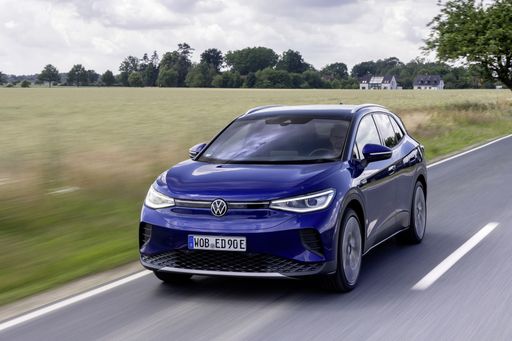
VW ID.4
Ford Puma
The Ford Puma is a cheeky compact crossover that blends sporty styling with city-friendly practicality, giving drivers a surprisingly fun and composed ride. With clever storage tricks and a lively personality, it’s a smart pick for buyers who want enjoyment without fuss.
details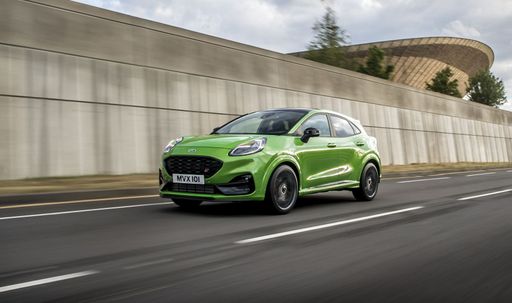
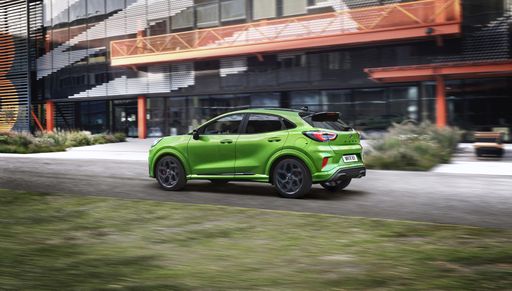
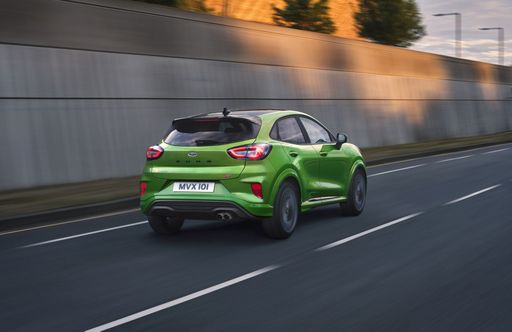
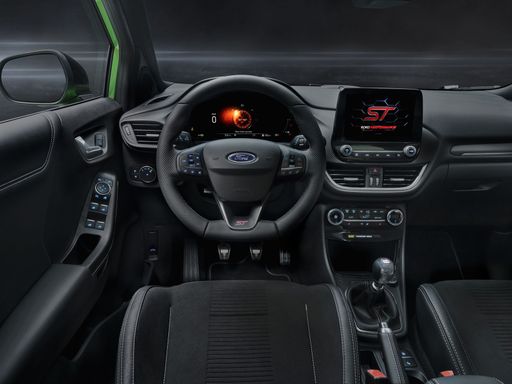
VW ID.4
The VW ID.4 is a calm, roomy electric SUV that turns everyday driving into a quietly confident experience, its practical packaging and smooth manners tailored perfectly for family life. Volkswagen's solid build and intuitive interior tech mean you get electric practicality without the sci‑fi theatrics, making the ID.4 a sensible, surprisingly likable choice for most buyers.
details
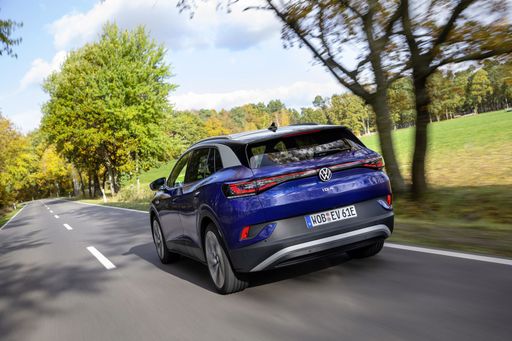
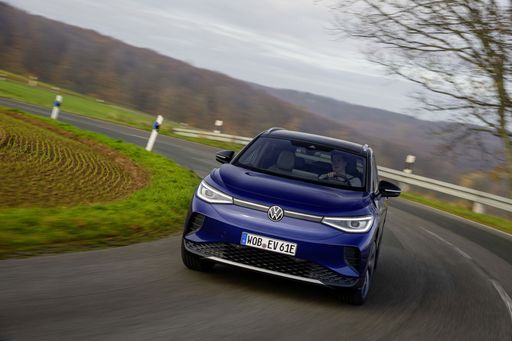
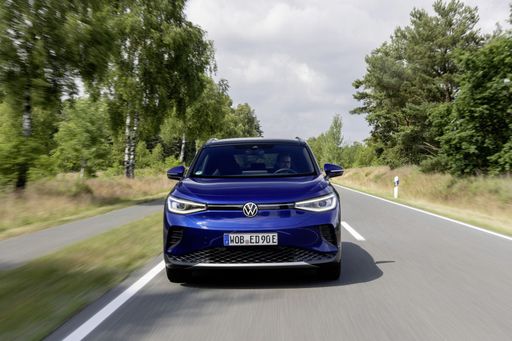
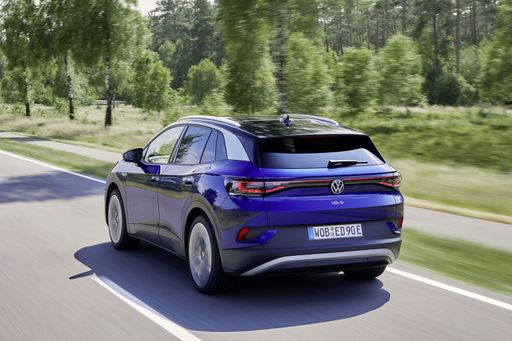

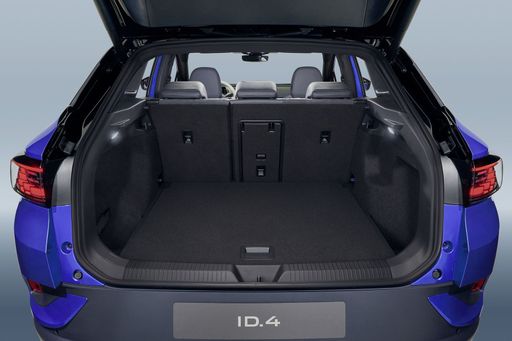
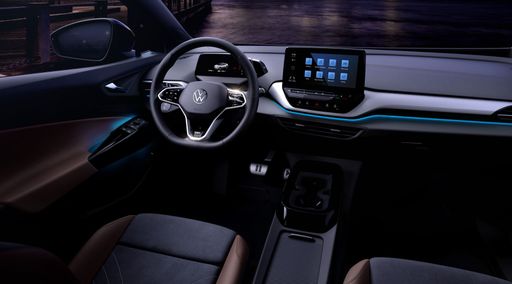
Costs and Consumption |
|
|---|---|
|
Price
24800 - 36300 £
|
Price
34600 - 47200 £
|
|
Consumption L/100km
5.4 - 5.9 L
|
Consumption L/100km
-
|
|
Consumption kWh/100km
13.1 - 13.9 kWh
|
Consumption kWh/100km
15.6 - 17 kWh
|
|
Electric Range
361 - 376 km
|
Electric Range
356 - 569 km
|
|
Battery Capacity
43 kWh
|
Battery Capacity
52 - 77 kWh
|
|
co2
0 - 135 g/km
|
co2
0 g/km
|
|
Fuel tank capacity
42 L
|
Fuel tank capacity
-
|
Dimensions and Body |
|
|---|---|
|
Body Type
SUV
|
Body Type
SUV
|
|
Seats
5
|
Seats
5
|
|
Doors
5
|
Doors
5
|
|
Curb weight
1316 - 1563 kg
|
Curb weight
1975 - 2248 kg
|
|
Trunk capacity
456 - 523 L
|
Trunk capacity
543 L
|
|
Length
4186 - 4226 mm
|
Length
4582 - 4584 mm
|
|
Width
1805 mm
|
Width
1852 mm
|
|
Height
1550 - 1555 mm
|
Height
1619 - 1634 mm
|
|
Max trunk capacity
1216 - 1283 L
|
Max trunk capacity
1575 L
|
|
Payload
367 - 469 kg
|
Payload
515 - 551 kg
|
Engine and Performance |
|
|---|---|
|
Engine Type
Electric, Petrol MHEV
|
Engine Type
Electric
|
|
Transmission
Automatic, Manuel
|
Transmission
Automatic
|
|
Transmission Detail
Reduction Gearbox, Manual Gearbox, Dual-Clutch Automatic
|
Transmission Detail
Reduction Gearbox
|
|
Drive Type
Front-Wheel Drive
|
Drive Type
Rear-Wheel Drive, All-Wheel Drive
|
|
Power HP
125 - 168 HP
|
Power HP
170 - 340 HP
|
|
Acceleration 0-100km/h
7.4 - 9.8 s
|
Acceleration 0-100km/h
5.4 - 9 s
|
|
Max Speed
160 - 210 km/h
|
Max Speed
160 - 180 km/h
|
|
Torque
170 - 290 Nm
|
Torque
310 - 679 Nm
|
|
Number of Cylinders
3
|
Number of Cylinders
-
|
|
Power kW
92 - 124 kW
|
Power kW
125 - 250 kW
|
|
Engine capacity
999 cm3
|
Engine capacity
-
|
General |
|
|---|---|
|
Model Year
2025
|
Model Year
2023 - 2025
|
|
CO2 Efficiency Class
A, D
|
CO2 Efficiency Class
A
|
|
Brand
Ford
|
Brand
VW
|
Is the Ford Puma offered with different drivetrains?
The Ford Puma is offered with Front-Wheel Drive.




